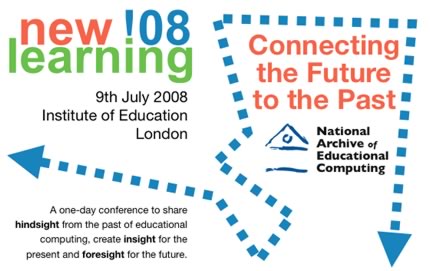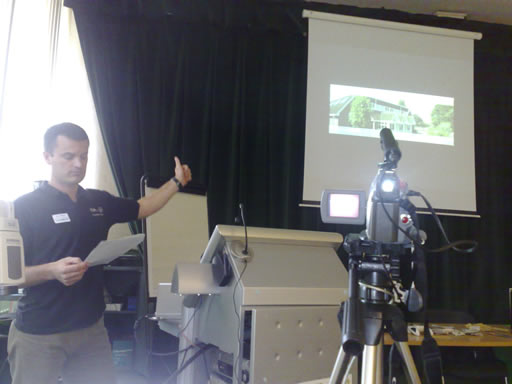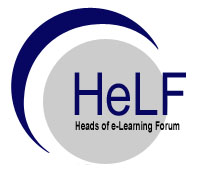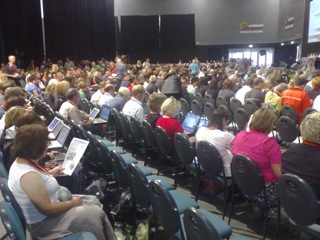
Adrian Mitchell has died;
Boo!
Adrian asked to be lied
to
About Vietnam, I cried
Hoo!
A priapic puppy made me laugh
And kittens,
two
Feeling daft through and
through
But mostly, I miss him

A new learning landscape

Adrian Mitchell has died;
Boo!
Adrian asked to be lied
to
About Vietnam, I cried
Hoo!
A priapic puppy made me laugh
And kittens,
two
Feeling daft through and
through
But mostly, I miss him

It’s illuminating when an organisation such as the BBC takes the trouble to explain its efforts to deal with the flood of expression that has risen in a Web 2.0 world.
Thanks to Tom van Aardt, Communities Editor, BBC Future Media & Technology, for blogging their experiences here – Strictly Message Board: What Happened
“Eventually, I decided to close the Strictly Come Dancing board at 22:00 so the moderators could work through the backlog of messages.”
He doesn’t mention the hours that the reader can sink into reading such commentary in the search for insight, a phenomenon I have recently experienced whenever trying to make sense of high definition television or keeping up with reaction to Obama’s election!

I have been reading the report ‘On-line Innovation in Higher Education‘ submitted by Sir Ron Cooke to John Denham recently and I’m not impressed.
It seems to be but a variation on the ‘content is king’ theme and, by its own standards, seems to miss many points.
The title of this blog ‘Content is muck’ is intended to disparage this approach and at the same time recognise the importance of high quality, accessible content as a fertiliser for the growth of knowledge amongst learners.
Probably most critical is the following:
“2.5 The education and research sectors are not short of strategies but a visionary thrust across the UK is lacking.” p8
So where in this document is a vision outlined – where is it to come from? I (and many others) would be happy to offer one! But seriously, this is the moment and little here is visionary.
These further quotations from the document raised a range of issues:
“1.1 [..] We lag behind in generating and making available high quality modern learning and teaching
resources. [..]” p3
The difficulty I have with this is the way in which we go about catching up. We should be careful not to spend too much money on material which becomes out-of-date within a year, is specific to particular courses, contexts and levels or fails to enhance the creative rôle for the learner in developing their own knowledge.
“3.15 [..] diagram [..] showing areas where students are currently pushed beyond their comfort zones.[..]” p12
The diagram referred to shows some ICT tasks in a grid with four quadrants – the top left shows tasks which are ‘”Familiar” / “Not comfortable using” and includes “Using social networks such as Facebook as a formal part of the course”, but the task “Using existing online social networks to discuss work” is shown in the bottom right quadrant “Unfamiliar” / “Comfortable with using” – how can this be, what do they mean? Sadly the document lets us down here, with no reference to a source, unlike the bulk of the work. A report of this significance needs to be of the highest quality of it is to be convincing.
“3.19 [..] iv. where students tend to learn almost entirely at a distance (e.g. The Open University and the student base the UK e-university aimed for) high quality, purpose written, online materials and high quality online support services are essential;” p13
I agree in part, but what does “tend to learn almost entirely as a distance” mean? Is it not the case that learning materials and support for face-to-face learning should be of similar standard? The unspoken assumption is that learning at a distance is solitary and thus the materials and support must compensate for the lack of ‘learning conversation’ – this is simply not the case in the modern social web.
We have had extensive experience over five years of fully online provision in the Ultraversity project where “purpose written, online materials” have been minimal. This has led to no lack of quality, as the guidance and support is generated through dialogue shared by a cohort of students – the online community of inquiry. Authoritative sources, journals and textbooks including key professional documents, are available widely on the internet and can be engaged with rigorously, critcially and comprehensively. This way of organising learning is most effective in that it also sets up the student for further lifelong learning.
“3.28 [..] The e-university was ahead of its time but the UK can learn from its mistakes and it is not too late to try again to address the demand for virtual, largely on-line education in the UK and
elsewhere. [..]” p15
I think not – the e-university did not take a visionary nor innovative approach in my view and was not at all ahead of its time, but tried to take old approaches into new technology with minimal account of growing evidence of the efficacy of new models of online learning.
For the sake of my tax bill please lets not try again without considerably more care and wisdom!
This was the best hour or so I’ve spent on YouTube…. about YouTube.
It helped me to see development and change happening in YouTube usage and to feel that there is still a way to go to be mature as a population online, but what an exciting journey?
Much more insightful debate at the Digital Ethnography blog.

This conference is taking place on Wednesday with about 50 folk – I know many others would have liked to come, but this is only a start and there’ll be more. For those unable to be there, there will be plenty of reporting to come, and you can download the conference pack and archive leaflet right here.
More importantly, if you have a story to contribute about your experiences with educational computing over the last four decades, contribute it in the stories section of the National Archive of Educational Computing website and if you want to do more, fill in the form in the support section.
My first post about TeachMeet was a hurried blog in case Ewan offered a prize for the first person to Blog the event!
More reflection, and waiting until the end, allows a more thoughtful blog which fills in some of the blanks.
Blank 1 – why speak about delight?
It was delightful to be able to speak about delight, and to discuss with colleagues in the breaks to ‘orient’ my thinking about this important topic.
I failed to say that I care to make an analysis of delight for many reasons:
Blank 2 – what a stonking set of presentations!
I failed to mention the wealth of speakers and the high quality of their ideas and practices on parade. Egocentrically, and only after Drew Buddie had pointed it out, I was struck by the chickens coming home to roost from Ultralab‘s and Apple Teacher Institute work in the early ‘noughties’, such as movie making and stop-motion animations around social and serious issues. More moving were the confident presentations from folk like Sarah Hackett on using Moodle to teach folk fiddle and Tom Whitehead on animal shape poetry workshops, both researchers from Ultraversity, these along with many others were inspiring.
Blank 3 – FlashMeeting
I had volunteered to be the meeting end of an online video-conference for those who couldn’t be arsed couldn’t get to Redbridge. 🙂 Thanks to David Noble, Anthony Evans and Nic Hughes for making it all so easy. It seemed to work well, using FlashMeeting and connecting my Apple MacBook Pro to a Canon digital video camera with a firewire cable and using a directional microphone to get the best quality – I rely on reports from participants as to whether this was effective and I apologise now for the time through the break when I went to get a beer and got cornered in the bar – I came back to find the camera pointing at the ceiling! I only regret not carrying through my original plan to use a second data projector so that the audience in the building could see the participants out there and perhaps respond to their questions and comments. Next time.
 Great fun here in Redbridge Teachers’ Centre, free beer, good conversation and interesting ideas. As Ewan put it “Butlins for geeks”
Great fun here in Redbridge Teachers’ Centre, free beer, good conversation and interesting ideas. As Ewan put it “Butlins for geeks”
Ever since reading about John Heron’s ‘up-hierarchy’ of delight, with his wonderfully expressive language, I have been enjoying adding new elements (although disregarding for now their connection, except as a list). I have made a poster of them and will be talking about them (if chosen to speak) at the TeachMeet in Redbridge on Monday 19th May.
The idea is that they are a source of explanation and stimulus for designing delight into teaching & learning.
Why do we like playing games on the computer? – perhaps because high quality and visually seductive graphics offer ‘appreciation’ and the many choices and their consequences feed ‘zest’.
Why do we like learning together? – perhaps because we get ‘conviviality’, ‘recognition’ and ‘controversy’.
Why do we persist when learning is tough? – perhaps because there is ‘interest’, ‘recognition’ and ‘resolution.
Is this all too obvious? Or do you, like me, want to put this poster on your wall to keep it fresh in your mind?

An analysis of delight by Richard Millwood is licensed under a Creative Commons Attribution-Share Alike 2.0 UK: England & Wales License.
Based on a work at blog.richardmillwood.net.An Analysis of Delight

I have been speaking on the issues surrounding Social Software in learning here at the Heads of eLearning Forum meeting in Coventry.
Here are my slides as a pdf
Thanks to Wesley Fryer (and his informants!) I watched this movie from Vanessa Van Petten which explains her view of the ‘why’ of social networking.
It reminded me of the trouble I am in with simple email – the ability it has brought to maintain half-baked relationships with altogether too many people, and thus fail most of them. I have termed this ‘relationship productivity’ and view it as troublesome, but to a teenager it is real power. The issues of identity and privacy are easier for me to enjoy/control, and I reckon I get a buzz from them just like the modern teenager.

The participants in Learning@School have brought so many laptops it broke the wireless! I am here in New Zealand with Patrick to present at this massive teachers’ conference organised by Core Education. I have two workshops on ‘Delight in Learning’ and a keynote to present on ‘Learners at the Centre’ at the end. In fact I have just finished the first workshop and learnt some really useful ideas of how delight happens in learning, which will be reported on the conference web site (I will edit this post then to include a link).
I was pleased to present these slides at this international pre-BETT event organised by BESA and Steljes – it gave me a chance to glue together the thinking we have developed over the year in Core UK through our projects. Linking the National Archive of Educational Computing (hindsight) to our work to facilitate communities of curriculum innovation with QCA (insight) and to the meeting in Kronberg to consider the future of Knowledge Sharing and Acquisition which we helped to organise with UNESCO (foresight) gave me great pleasure – as did the first outing for my analysis of delight, in part based on John Heron’s work.
Went with Patrick to this excellent meeting of young and old minds. We spoke to Cameron (8) who told us his ideas for a “mp3 and mp4” player so that he wouldn’t get bored when avoiding his younger brother! It reminded me that changing the world starts small, and visions of what’s important are close to home as well as global.
Another in the series of events promoted by my long-term friend, colleague and mentor Stephen Heppell, to showcase creative use of technology by young learners from all kinds of educational settings. The photo shows one youngster for whom the event was proving exhausting, but mostly the adults were knocked out by the interesting ideas on show. I was most excited by the use of the Nintendo DS for exercising number facts – an annoyingly useful knowledge which deserves entertaining and competitive challenges to make learning more delightful.
Shared a platform with Gillian Lovegrove on this topic at the Naace All-Members Conference at Cisco in Feltham. I enjoyed the relatively easy task of listing some of the arguments for computing’s contribution to the wealth of human knowledge:
After Gillian’s points about the problems facing the subject of computing, it was most challenging to hear one member of the audience ask the question: “Could it be our fault?”. It will be interesting to see how this discussion develops in the future.
A day which thoroughly overlapped two intriguing events, but I managed to make breakfast at the RSA for Becta’s Harnessing Technology: Research Forum and then skip across the road to present at the BCS KIDMM MetaKnowledge Mash-up and then back again for the wrap-up session at the end of the day back at the RSA. Diane Oblinger obligingly begged my question, she having identified as three purposes of education: Economic Wealth, Citizenship and Social Mobility. This left me with the opening to ask about the status of Cultural Enrichment and Individual Fulfilment as further aims for education, and how digital creativity might be central to delivering these aims?